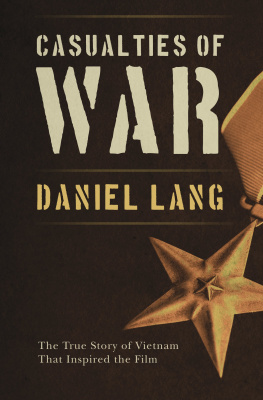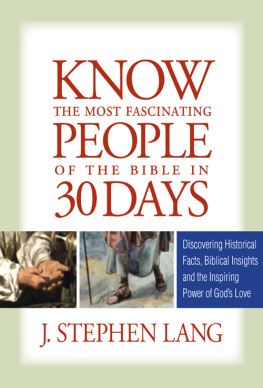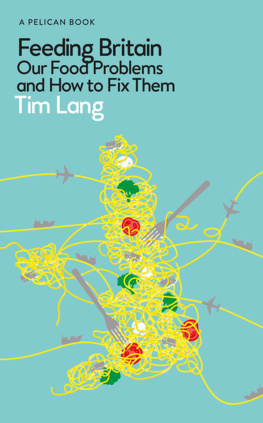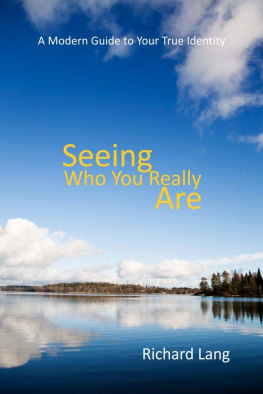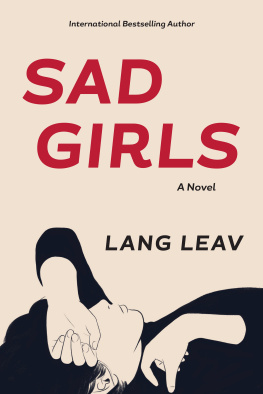Robert Beaken is parish priest of St Mary the Virgin, Great Bardfield and St Katharine, Little Bardfield in Essex. He holds a PhD from Kings College London.
Cosmo Lang
Archbishop in War and Crisis
Robert Beaken
Foreword by Rowan Williams
Published in 2012 by I.B.Tauris & Co Ltd
6 Salem Road, London W2 4BU
175 Fifth Avenue, New York NY 10010
www.ibtauris.com
Distributed in the United States and Canada Exclusively by Palgrave Macmillan
175 Fifth Avenue, New York NY 10010
Copyright 2012 Robert Beaken
The right of Robert Beaken to be identified as the author of this work has been asserted by the author in accordance with the Copyright, Designs and Patents Act 1988.
All rights reserved. Except for brief quotations in a review, this book, or any part thereof, may not be reproduced, stored in or introduced into a retrieval system, or transmitted, in any form or by any means, electronic, mechanical, photocopying, recording or otherwise, without the prior written permission of the publisher.
ISBN: 978 1 78076 355 2
eISBN: 978 0 85773 128 9
A full CIP record for this book is available from the British Library
A full CIP record is available from the Library of Congress
Library of Congress Catalog Card Number: available
Typeset by JCS Publishing Services Ltd jcs-publishing.co.uk
To FDJB, BMB and ACDB
Contents
Illustrations
Foreword
History and biography have not dealt kindly with Archbishop Lang. His predecessor was regarded with affection as a shrewd, serene, patriarchal figure; his successor was a charismatic national leader, a major public intellectual and a theological and devotional writer of unusual quality. Langs public utterances could be badly judged, and he was mercilessly abused by sections of the media. His own complex personality both fascinated and alienated contemporaries, and his first biographer (who had not known him personally) concentrated on this in ways that were none too helpful. Most people who remember his name at all remember the unfortunate broadcast at the time of Edward VIIIs abdication or perhaps the anecdote about Orpens portrait of him (proud, pompous and prelatical).
Robert Beaken has undertaken an immense labour of research in the copious primary materials now available, and has produced a completely fresh picture of Lang. For the first time, we are given a glimpse of his warm friendships with women as well as men; we learn to see him as an insightful and sympathetic counsellor to the English Establishment, not just a moralising observer; and we meet a man who had a far more creative approach to both the social and the religious challenges of his era than we should ever have guessed from earlier treatments. This is a three-dimensional figure; certainly a man of his age and class, with the limitations that implies, but also a thoughtful and courageous leader of his Church. Much in regard of the health and vigour of the Church of England that might have been ascribed to other influences turns out to have owed a great deal to his oversight. Lang helped the Church rise to the challenge of the Second World War, but he was already thinking forward to the tests of a post-war world.
Dr Beaken organises his material with clarity and vividness. This is a study that will open up some very important new perspectives on the twentieth-century Church of England, and should appeal to a much wider readership as well. Lang stood near the centres of political power at a time of unprecedented change and intense crisis. His contribution to state as well as Church was substantial. This excellent book spells out what he gave to both Church and state and helps us towards a far more rounded appreciation of an unusual, gifted, sometimes tortured, always dedicated Christian pastor.
+Rowan Cantuar:
Lambeth Palace
London SE1
Acknowledgements
I wish to thank Her Majesty Queen Elizabeth II for graciously giving me permission to reproduce material from the Royal Archives. I am also grateful to The Queen for allowing me access in 2004 to the then-restricted royal correspondence in the Baldwin Papers.
I am especially grateful to Her late Majesty Queen Elizabeth The Queen Mother, who received me in audience and took a great interest in my work on the archbishop who had crowned her in 1937. Almost Her Majestys last words to me were an injunction to write to her if I had any further questions or wanted help.
I should like to take this opportunity to record my immense gratitude to the late Melanie Barber, who placed her detailed knowledge of the archives at Lambeth Palace Library at my disposal, and helped me to decipher Cosmo Langs handwriting, which was not always an easy task. I should also like to express my thanks to all who have helped me with my research, answered my enquiries, or otherwise been of assistance: the Most Rev. and Right Hon. Dr Rowan Williams, Archbishop of Canterbury; the late Sir Alastair Aird, private secretary to HM Queen Elizabeth The Queen Mother; Miss Cressida Annesley, Canterbury Cathedral Archives; the Right Rev. Dom Aidan Bellenger OSB; Mr David Blake, Royal Army Chaplains Department Museum; Lord Brownlow; Professor Arthur Burns; Miss Julia Burt; the late Lady Mairi Bury; the Right Rev. Lord Carey of Clifton; the Right Rev. John Cavell; Miss Pamela Clark, Royal Archives, Windsor; Dr David Crankshaw; Ms Jessica Cuthbert-Smith; Viscountess Downe; Lady Alethia Eliot; Dr Dominic Erdozain; the late Sir Edward Ford, assistant private secretary to HM King George VI; Miss Joanna Godfrey; Mr John Green-Wilkinson; Miss Sharon Hamilton; Mr Robin Harcourt Williams; Mr David Hardy, Federal Bureau of Investigation; the late Earl of Harewood; the Right Rev. Christopher Hill; the late Canon Derek Ingram Hill; Mr Marcus Humphreys; the late Baron Jenkins of Hillhead; Dr Elisabeth Kehoe; Abbot Kyrill of the Community of St John the Baptist, Tolleshunt Knights; the Right Rev. Robert Ladds; Lord Londonderry; Mr David Malcolm; Sir John Maxwell Macdonald; Mr Peter Meadows, Cambridge University Library; Metropolitan Meliton of Philadelphia; the Right Rev. John Perry; Dr Colin Podmore; Herr Rudolf von Ribbentrop; Madame Francesca Roques; Mrs Celia Root; Sir Clive Rose; the Right Rev. Dr Geoffrey Rowell; Mr David Sellar, Lord Lyon King of Arms; Mr James and Mrs Gabrielle Service; the Rev. Dr Jeremy Sheehy; Mr Nicholas Shipman; the Rev. W.A. Simons; Dr Mark Smith; Dr Laurel Spooner; Ms Mari Takayanagi, House of Lords Archivist; Dr Alexander Taylor; Canon Garth Turner; Miss Louise Wardle; Mr Jeremy and Mrs Gudrun Warren; the Rev. Gordon Watkins; Mr Irvine Watson; Mrs Wendy White-Thompson; Professor Sir Colin St John Wilson; Canon Alan Wilkinson.
I should also like to thank the staff of the following institutions: Balliol College, Oxford; the Bodleian Library, Oxford; the Borthwick Institute, York; the British Library; Cambridge University Library; Canterbury Cathedral Archives; Churchill College Library, Cambridge; the Coddrington Library, All Souls College, Oxford; Colchester Library; Durham Cathedral Archives; Essex Record Office; the Institute for Historical Research, London; Kings College London Library; Philip de L szl Catalogue Raisonn; Leeds University Library; Lincolnshire Record Office; The National Archives, Kew; the National Library of Scotland, Edinburgh; Norwich Cathedral Library; Pusey House, Oxford; Rhodes House, Oxford; Ripon College Cuddesdon Library; the Royal Archives, Windsor; University College London Library; University of London Library; the Wellcome Institute Library, London; Westminster Abbey Muniment Room. Above all, I should like to thank the staff of Lambeth Palace Library, London, for all their help, advice and encouragement.



